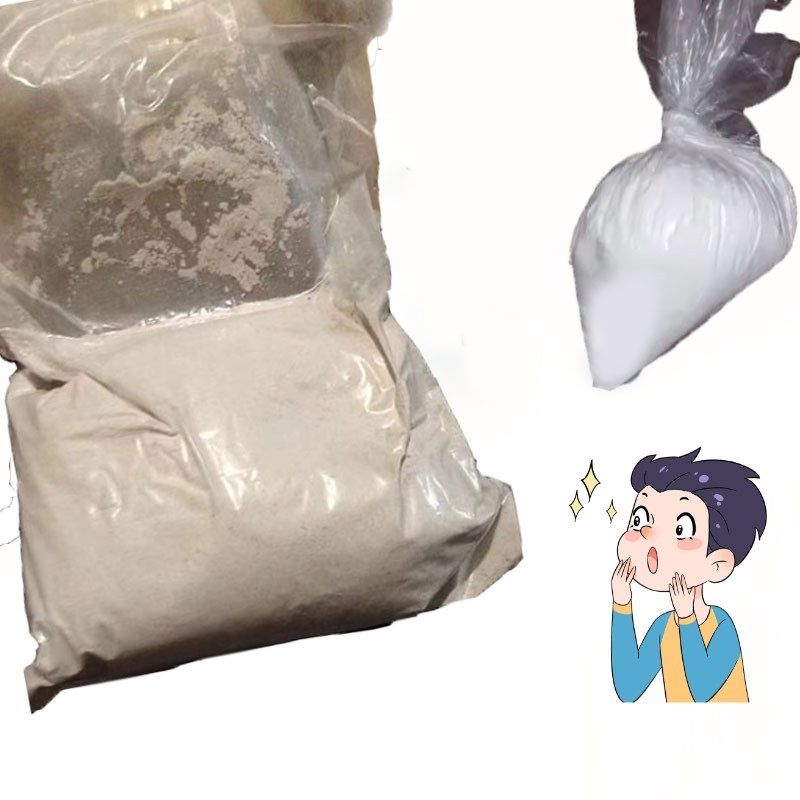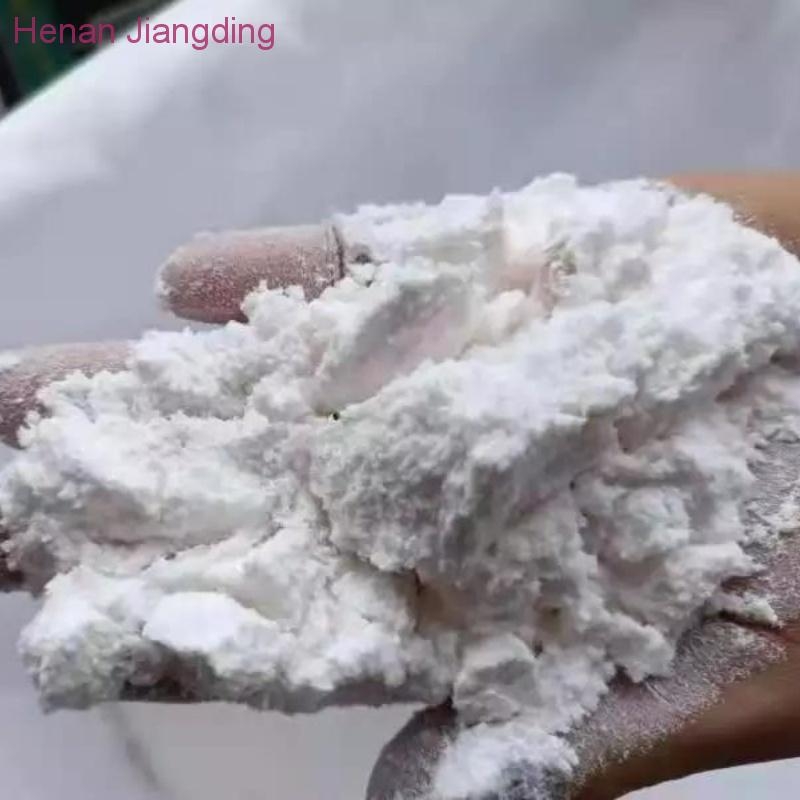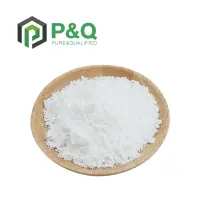-
Categories
-
Pharmaceutical Intermediates
-
Active Pharmaceutical Ingredients
-
Food Additives
- Industrial Coatings
- Agrochemicals
- Dyes and Pigments
- Surfactant
- Flavors and Fragrances
- Chemical Reagents
- Catalyst and Auxiliary
- Natural Products
- Inorganic Chemistry
-
Organic Chemistry
-
Biochemical Engineering
- Analytical Chemistry
- Cosmetic Ingredient
-
Pharmaceutical Intermediates
Promotion
ECHEMI Mall
Wholesale
Weekly Price
Exhibition
News
-
Trade Service
Responsible Editor | The control and treatment of Addictive Drugs by Enzyme is a serious medical and social problem in recent years, and its pathogenic mechanism and treatment strategies have not been very clear.
Dopamine is known as the brain's pleasure neurotransmitter, which affects mood and mobility.
Dopaminergic neurons located in the VTA (ventral tegmental area) project to NAc (nucleus accumbens, nucleus accumbens).
When faced with rewards (such as food), dopamine is released in NAc.
Activate downstream neuronal activity and pleasure.
Under normal circumstances, dopamine will be recovered to dopaminergic neurons through DAT (dopamine transporter) to avoid excessive dopamine conduction.
Some addictive drugs, such as cocaine, bind to and inhibit DAT, which in turn causes dopamine to accumulate in the synaptic cleft, resulting in continuous excessive pleasure and a series of addictive behaviors.
On the other hand, dopamine release is regulated by the negative feedback of GPCR (G protein-coupled receptor) dopamine receptor 2 (D2R, dopamine receptor D2) on dopaminergic neurons.
D2R is an autoreceptor, which can inhibit the secretion of dopamine after being activated by dopamine, so it is an important factor to avoid excessive release of dopamine.
In animal models of drug addiction and patients, the number of D2R has decreased, but it is not clear what causes the decrease in D2R.
The Congcong He laboratory of Northwestern University in the United States mainly studies how autophagy recognizes degraded substrates and the role of this protein degradation in metabolism, neuroregulation and animal behavior.
In order to answer the above questions, they used the existing autophagy gene knockout mouse model to study whether autophagy regulates addictive behavior.
On February 19, the research results An autophagy-related protein Becn2 regulates cocaine reward behaviors in the dopaminergic system were published in Science Advances.
The study found that mice that systematically knocked out Becn2/Beclin2 (the homolog of Becn1) exhibited abnormal addictive behaviors.
The mental stimulation and reward effects of cocaine on them are greatly reduced.
For example, through the intravenous self-administration reward experiment, the preference of Becn2 knockout mice for cocaine is much smaller than that of wild-type mice.
Through microdialysis experiments, it is found that the neurotransmitter regulated by Becn2 is dopamine.
Cocaine did not cause dopamine accumulation and downstream phosphorylation signal transduction in NAc brain regions of Becn2 knockout mice.
In addition, using the floxed Becn2 mouse model, it was found that Becn2 works in dopaminergic neurons, because specific knockout of Becn2 in dopaminergic neurons will reduce reward behavior, and the specific expression of Becn2 in dopaminergic neurons can restore Reward behavior of systemic Becn2 knockout mice.
Further experiments found that D2R is a degradation substrate of Becn2.
The synaptosomes in the NAc brain regions of wild-type and Becn2 knockout mice were purified by biochemical methods and divided into two parts: presynaptic membrane and postsynaptic membrane.
It was found that the amount of presynaptic D2R in Becn2 knockout mice was significantly increased.
In addition, without Becn2, D2R cannot be transported to the lysosome for degradation, but will be recycled to the plasma membrane after a period of time in the endosome.
The use of D2R antagonist can restore the reward behavior of Becn2 knockout mice, which also confirms that elevated D2R is the cause of behavioral changes in Becn2 knockout mice.
In terms of molecular mechanism, studies have found that Becn2 degrades D2R by binding to the adaptor protein GASP1 (GPCR-associated sorting protein 1), and the other end of GASP1 can bind to D2R.
In addition, the experiment also determined the site where Becn2 binds to GASP1: If this site S97L is mutated, the mutant mice will be like Becn2 knockout mice, the D2R on the presynaptic membrane of the NAc brain area becomes more stable, and it can also avoid cocaine spirit The appearance of stimulus.
The researchers further thought about expanding the application prospects of this discovery.
They believe that because Becn2 is a member of the autophagy class III PI3K complex, it should also be regulated by upstream autophagy proteins, such as ULK1 kinase and Vps34 kinase.
So some upstream autophagy inhibitors, such as SBI-0206965 (inhibiting ULK1) and Spautin-1 (inhibiting Vps34), will they have the same effect as knocking out Becn2? Studies have found that these autophagy inhibitors can indeed inhibit the mental stimulation and rewarding behavior of cocaine, can also inhibit the accumulation of dopamine in the NAc brain area caused by cocaine, and can also make presynaptic D2R more stable.
In summary, this study proved that autophagy proteins can change reward and addictive behaviors by regulating the degradation and metabolism of dopamine receptors, and upstream autophagy inhibitors can reduce the addictive effects of cocaine by inhibiting autophagy proteins.
Apart from cocaine, this pathway may play a role in many other addictive and mental illnesses caused by dopamine abnormalities.
Original link: https://advances.
sciencemag.
org/content/7/8/eabc8310.
full
Dopamine is known as the brain's pleasure neurotransmitter, which affects mood and mobility.
Dopaminergic neurons located in the VTA (ventral tegmental area) project to NAc (nucleus accumbens, nucleus accumbens).
When faced with rewards (such as food), dopamine is released in NAc.
Activate downstream neuronal activity and pleasure.
Under normal circumstances, dopamine will be recovered to dopaminergic neurons through DAT (dopamine transporter) to avoid excessive dopamine conduction.
Some addictive drugs, such as cocaine, bind to and inhibit DAT, which in turn causes dopamine to accumulate in the synaptic cleft, resulting in continuous excessive pleasure and a series of addictive behaviors.
On the other hand, dopamine release is regulated by the negative feedback of GPCR (G protein-coupled receptor) dopamine receptor 2 (D2R, dopamine receptor D2) on dopaminergic neurons.
D2R is an autoreceptor, which can inhibit the secretion of dopamine after being activated by dopamine, so it is an important factor to avoid excessive release of dopamine.
In animal models of drug addiction and patients, the number of D2R has decreased, but it is not clear what causes the decrease in D2R.
The Congcong He laboratory of Northwestern University in the United States mainly studies how autophagy recognizes degraded substrates and the role of this protein degradation in metabolism, neuroregulation and animal behavior.
In order to answer the above questions, they used the existing autophagy gene knockout mouse model to study whether autophagy regulates addictive behavior.
On February 19, the research results An autophagy-related protein Becn2 regulates cocaine reward behaviors in the dopaminergic system were published in Science Advances.
The study found that mice that systematically knocked out Becn2/Beclin2 (the homolog of Becn1) exhibited abnormal addictive behaviors.
The mental stimulation and reward effects of cocaine on them are greatly reduced.
For example, through the intravenous self-administration reward experiment, the preference of Becn2 knockout mice for cocaine is much smaller than that of wild-type mice.
Through microdialysis experiments, it is found that the neurotransmitter regulated by Becn2 is dopamine.
Cocaine did not cause dopamine accumulation and downstream phosphorylation signal transduction in NAc brain regions of Becn2 knockout mice.
In addition, using the floxed Becn2 mouse model, it was found that Becn2 works in dopaminergic neurons, because specific knockout of Becn2 in dopaminergic neurons will reduce reward behavior, and the specific expression of Becn2 in dopaminergic neurons can restore Reward behavior of systemic Becn2 knockout mice.
Further experiments found that D2R is a degradation substrate of Becn2.
The synaptosomes in the NAc brain regions of wild-type and Becn2 knockout mice were purified by biochemical methods and divided into two parts: presynaptic membrane and postsynaptic membrane.
It was found that the amount of presynaptic D2R in Becn2 knockout mice was significantly increased.
In addition, without Becn2, D2R cannot be transported to the lysosome for degradation, but will be recycled to the plasma membrane after a period of time in the endosome.
The use of D2R antagonist can restore the reward behavior of Becn2 knockout mice, which also confirms that elevated D2R is the cause of behavioral changes in Becn2 knockout mice.
In terms of molecular mechanism, studies have found that Becn2 degrades D2R by binding to the adaptor protein GASP1 (GPCR-associated sorting protein 1), and the other end of GASP1 can bind to D2R.
In addition, the experiment also determined the site where Becn2 binds to GASP1: If this site S97L is mutated, the mutant mice will be like Becn2 knockout mice, the D2R on the presynaptic membrane of the NAc brain area becomes more stable, and it can also avoid cocaine spirit The appearance of stimulus.
The researchers further thought about expanding the application prospects of this discovery.
They believe that because Becn2 is a member of the autophagy class III PI3K complex, it should also be regulated by upstream autophagy proteins, such as ULK1 kinase and Vps34 kinase.
So some upstream autophagy inhibitors, such as SBI-0206965 (inhibiting ULK1) and Spautin-1 (inhibiting Vps34), will they have the same effect as knocking out Becn2? Studies have found that these autophagy inhibitors can indeed inhibit the mental stimulation and rewarding behavior of cocaine, can also inhibit the accumulation of dopamine in the NAc brain area caused by cocaine, and can also make presynaptic D2R more stable.
In summary, this study proved that autophagy proteins can change reward and addictive behaviors by regulating the degradation and metabolism of dopamine receptors, and upstream autophagy inhibitors can reduce the addictive effects of cocaine by inhibiting autophagy proteins.
Apart from cocaine, this pathway may play a role in many other addictive and mental illnesses caused by dopamine abnormalities.
Original link: https://advances.
sciencemag.
org/content/7/8/eabc8310.
full







